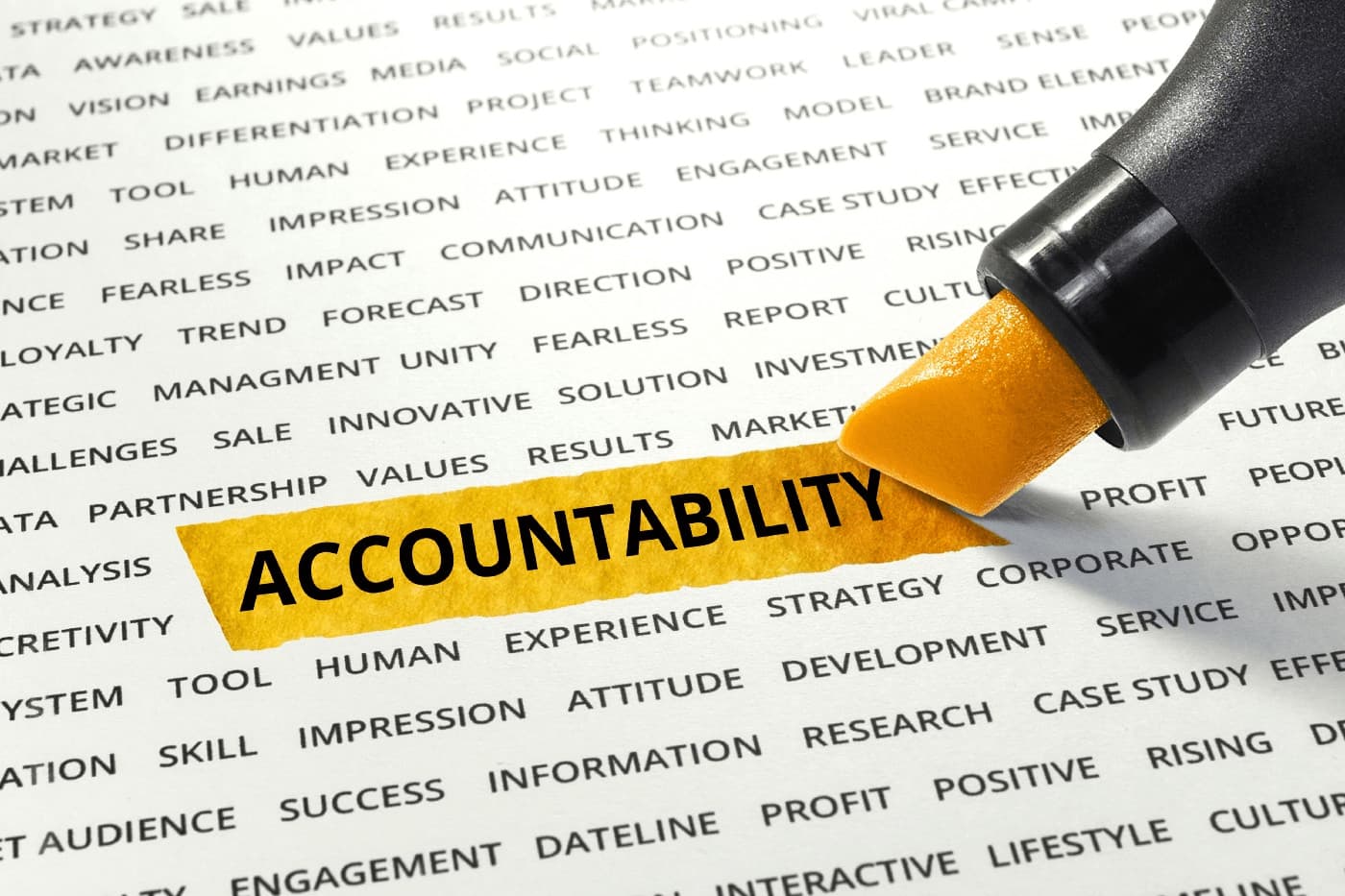Some people assume there is little or no difference when it comes to accountability vs responsibility in project management, but there are notable differences. It just takes time and experience to realize it and understand how and where it applies.
In this article, we’ll unravel the nuanced relationship between accountability and responsibility. Moreover, we’ll explore how employing the best time tracking software can offer invaluable insights into these dynamics. By the end, you’ll have a clearer understanding of how to foster a culture of ownership within your team and optimize productivity using this powerful tool.
Responsibility vs Accountability: Definitions and Reflections
Definitions of accountability and responsibility are largely similar at first glance, but worry not! Below we will tease apart the differences.
Understanding Accountability in Project Management
The definition of accountability is as follows:
Accountability is the obligation for an individual or organization to account for its activities, accept responsibility for them, and disclose the results in a transparent manner.
In other words, a person labeled as accountable for a task or project has to bear the consequences (good, bad, or neither) for any related decisions, actions, results, etc. In short, they are “held” accountable. And, they must “account” for what happened. For example:
“Ultimately, Susan was ACCOUNTABLE for her team’s performance, and for submitting a report summarizing their productivity on the project to her boss.”
Defining Responsibility in Project Management
In the interest of a fair comparison, the definition of responsibility is:
Responsibility is a duty or obligation to satisfactorily perform or complete a task (assigned by someone, or created by one’s own promise or circumstances) that one must fulfill, and which has a consequent penalty for failure.
Did you catch that? A person (or people) responsible for a task are those who actually work on and complete the task. Responsibility is usually assigned and measured by the person assuming “accountability”. A person “takes” responsibility, either because it’s given by another or because they are motivated to do so on their own. For example:
“Ben and Angela were equally RESPONSIBLE for submitting the timeline to Susan, otherwise the project would be delayed.”
Are responsibility and accountability the same thing?
In short, no; based on the comparisons above, it’s easy to see they’re not. While the differences between accountability and responsibility apply to all kinds of life scenarios, for now, we’ll look at those applicable to a workplace setting. Let’s compare and contrast accountability and responsibility in the workplace:
Workplace responsibility
- Ben and Angela share responsibility for completing the task.
- Ben and Angela are responsible for the task in an ongoing fashion until it is complete.
- Responsibility is often reliant upon individual behaviors for the successful completion of a task.
- Responsibilities are often assigned in connection to a specific role.
Workplace accountability
- Susan alone is accountable for the results and communication of the completion of the task.
- Susan gives an account of the results after the task is completed.
- Accountability means assuming consequences for the performance and behaviors of those who are assigned responsibility for the task.
- Accountability can be assigned with relationship to one or more roles where one has “ownership” of those roles.
Why Establishing the Difference Between Accountability and Responsibility Important?
Contained within our interpretation of accountability vs responsibility lie two assumptions:
- Those who assume accountability for a task are always involved in management, upper management, or something close to it.
- Those who are responsible for a task are always members of the teams managed by those accountable.
The problem with these assumptions is the potential for gaps and confusion with regard to who exactly should be held accountable, and who should be held responsible, for the deliverables of a project.
Assumptions of accountability
The title of manager or supervisor doesn’t automatically infer accountability for everyone and everything in the organization, nor should it. In other words, it’s not always necessary for someone with a management title to be held accountable. Accountability for a task can be passed down the chain to whoever is most appropriate and capable to assume that role.
In this great video, Seth Godin talks about these phenomenological concepts and gives some stellar examples of:
- the fine line between how one can take responsibility without being assigned accountability;
- what it means to be given authority and held accountable in an organization.
Reaching a happy medium
So who should be responsible and who should be accountable within the workings of a project? In short, that depends on the project, the abilities of team members to manage responsibility and accountability, and the motivation within the team.
Do you have people who will step up and voluntarily take responsibility for a task or project? Do you have others who are already responsible for a task but would like to assume accountability? These are the informational points your team can use to define roles of responsibility and accountability and the details around them.
Using a project management planning methodology that makes sense for your team helps to navigate those decisions, as does a resource tracking tool, particularly one with a forward resource planning feature.
Real-World Examples of Responsibility vs Accountability
As stated earlier in this article, illustrations of the differences between responsibility and accountability aren’t limited to the workplace. Here are 4 everyday examples to demonstrate!
Example 1️⃣
👉 Jeff assumes the responsibility of weeding a garden but has no accountability for his performance. If the garden is overrun with weeds, he has no one to answer to but himself for the consequences. Adversely, if he does a great job, he can claim responsibility for a job well done.
👉 Let’s say Jeff delegates the job of weeding the garden to his daughter, Jane. Subsequently, Jane will be held accountable by Jeff for her performance, and if she lets the garden become overrun with weeds, she must give an account to Jeff of what happened.
Example 2️⃣
👉 Jane takes responsibility for planning her best friend’s birthday party, and Tommy offers to share the responsibilities with her. If the two of them fail to plan in time, the party is going to be lame, but ultimately neither Jane nor Tommy will be held accountable by anyone else.
👉 Now let’s say that Jane takes responsibility for planning the party and Tommy offers to share the responsibilities. They can divide the tasks, and each can hold the other accountable for the completion of his or her tasks. For instance, if Jane is accountable for getting the cake, and she fails to get the cake, she must report to Tommy with an explanation of why she didn’t get the cake.
Example 3️⃣
👉 Students in a college course receive a curriculum from their professor for the year. It covers the topics they will need to know in order to pass or fail the class, as well as where to find the resources they need in addition to the class lectures. Being adults in college, they must take responsibility for attending the lectures and learning the materials throughout the semester. No one is holding them accountable, if they fail the class, they suffer the consequences on their own. Adversely, if they do well, they take responsibility for a job well done.
👉 Meanwhile, the professor of the class is held accountable for the students’ performance by the school’s administration. (S)he is expected to submit a report after grades are handed out about the performance of his/her students for the semester.
Example 4️⃣
👉 Now back to a work example: Lucy and Ethel work on an assembly line boxing chocolates. Lucy takes the responsibility for wrapping the chocolates and Ethel is responsible for putting them in the box. Certainly, they both accept the responsibilities designated for their roles at the factory… But if fewer chocolates are boxed that day than expected, neither will suffer accountability for it. They’re only two workers among many on an assembly line boxing chocolates.
👉 Meanwhile, Hilda is the supervisor held accountable for the number of chocolates boxed each day. If the assembly team, including Ethel and Lucy, boxes fewer chocolates than is expected, Hilda must submit the account to her supervisors of the details of why they fell short. She also suffers any punishments or consequences as a result and must manage the behaviors of her assembly workers to work faster.
Accountability vs Responsibility: In Closing
If you’re still asking what’s the difference between accountability and responsibility, you’re in good company. It’s a nuanced topic, and in some cases, can be open to interpretation. However, we hope our article has helped you to explore the topic, or better yet, has stimulated some productive conversation about it among you and your co-workers.
In any case, we bet the next time someone gives you responsibility for a task, or you hold someone accountable for your next project, you’ll think about it from a new perspective!
If you are managing a team of 5 or more and looking to boost efficiency, Everhour is the perfect tool to keep your team on track. With seamless time tracking, you can easily estimate task durations, set clear budgets, and generate detailed reports inside Asana, Trello, Jira, or any other pm tool.

Ready to take your team management to another level? Try Everhour!
A powerful tool to analyze employees’ workload capabilities & availability to plan who is best suited for accountability, responsibility, and everywhere in between!
Featured image credit: QPage.

